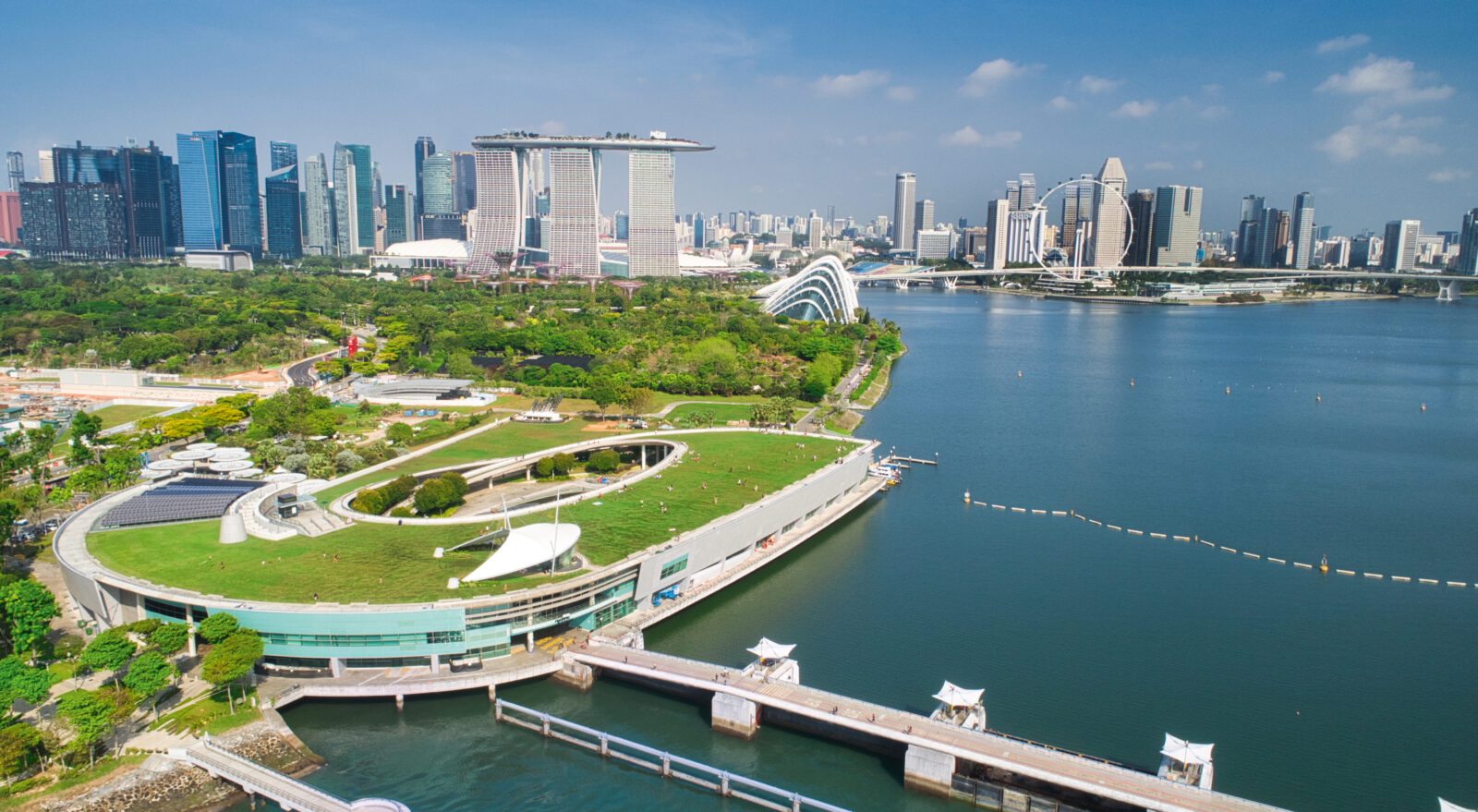With limited land and practically no natural resources at its disposal, Singapore has made enormous strides to move away from swamps and waterless settlements to a model country worldwide for its urban governance and planning for the city of tomorrow. As sustainability is the only option to face all the challenges of the land, the island has focused on using cleaner energy and water management technologies.
Innovation in Clean Energy & Water Management
Looking to accommodate the mobility needs of its rising population, Singapore has developed a fast and efficient public transport system. With the Land Transport Master Plan 2040 launched by the government, commuters in Singapore can expect to reach their nearest neighborhood centre within 20 minutes, and the city within 45 minutes. Electric vehicles, autonomous vehicles and cycling networks are deployed for cleaner air as well as provisions for barrier-free journeys to make public transportation accessible for all.
Fighting challenges against rainwater storage and lake scarcity, Singapore has also prioritized water conservation and resilience. To meet its water supply needs, it relies on a mix of sources including local catchment (two-thirds of the land surface), imported water, water reclamation and water desalination. About the latter, in February 2021 it opened the Keppel Marina East Desalination Plant, the fourth in the country. It is the country’s first large-scale dual-mode desalination plant that can treat both seawater as well as freshwater, depending on the prevailing weather conditions.
Singapore is also famous for its NEWater project, reclaiming water using advanced membrane technologies and ultra-violet disinfection for non-potable and indirect potable use. The two NEWater plants currently supply 40% of the nation’s water needs, a number expected to increase to 55% in the future.
Business Events Support the Development
Due to the continuous innovation in urban planning, Singapore is home to global thought leadership, offering easy access to like-minded industry leaders and conference attendees. The Singapore International Transport Congress and Exhibition was created to provide a key platform for all international urban mobility stakeholders to redefine the urban mobility landscape of tomorrow. With over 10,000 delegates in its three editions benefiting from technical visits to exclusive sites, the event has become a must-attend occasion for urban mobility thought leaders.
In the same spirit, the Singapore International Water Week was launched as a global platform to share and co-create innovative water solutions addressing contemporary challenges. The event gathers global water leaders and practitioners from both public and private sectors to engage in discussion and debate, network with key industry players, showcase leading-edge technologies and best practices, and identify practical methodologies to address the world’s most pressing water issues.
Since its inauguration in 2008, the World Cities Summit has gathered over 250 global cities to address liveable and sustainable city challenges and share integrated urban solutions.
Building a City on Sustainability
What has led Singapore to the top spots of sustainability reports worldwide is its commitment to creating urban solutions that will benefit the people and the planet now and in the long run. The Singapore Green Plan 2030, which outlines the nationwide agenda on sustainable development, is a cradle of opportunities for companies and industry partners to empower and invest in the local and global green transition.
In an effort to tackle climate change, new initiatives include goals to double electric vehicle charging points, reduce carbon waste by 30% by 2026, and to review carbon tax so that only the best-in-class carbon-intensive investments enter the country. Furthermore, over the next decade, Singapore plans to be a global leader for smart and sustainable building, mobility and environment solutions. The country has set a target to make 80% of its buildings more energy-efficient by 2030 through the Green Mark Incentive Scheme.
As food waste is also a critical sustainability issue, Singapore has updated its legislation to require large commercial and industrial food waste generators, such as hotels and developments housing food caterers, to segregate their food waste and allocate space for on-site food waste treatment from 2024 onwards. Big hotels have risen to the challenge, updating their equipment for food preparation and recycling. The International Solid Waste Association (ISWA) World Congress was held in September and aimed to showcase waste management more holistically and dynamically.
Global Partnerships Are Key
Singapore has realized that sustainability is not just a local matter. Collaboration with international counterparts is important to make progress for a more sustainable future, even more so in the meetings industry. Last year, Singapore Tourism Board (STB) became member of the Global Sustainable Tourism Council (GSTC) to advance sustainability in the global travel and tourism sector.
Singapore is also one of the partner cities of the BestCities Alliance, a collaboration committed to building a sustainable future and enable sustainable meetings that leave a lasting legacy. In 2021, during the BestCities Forum, the Alliance secured a pledge from destinations and associations to integrate sustainability and inclusivity into future conference planning.
More information: www.visitsingapore.com/mice
